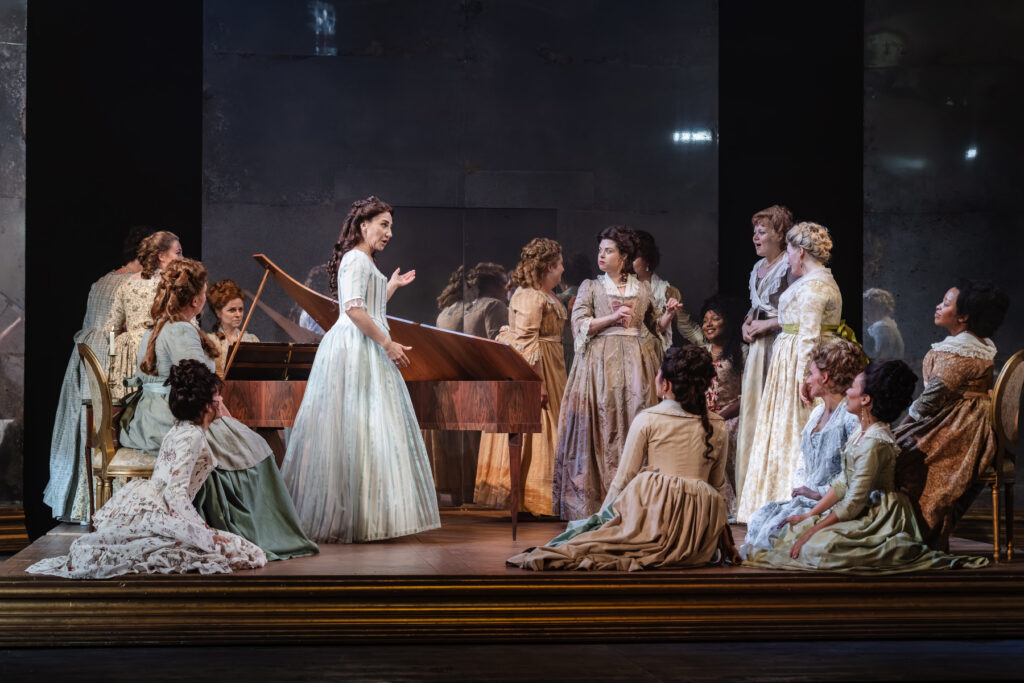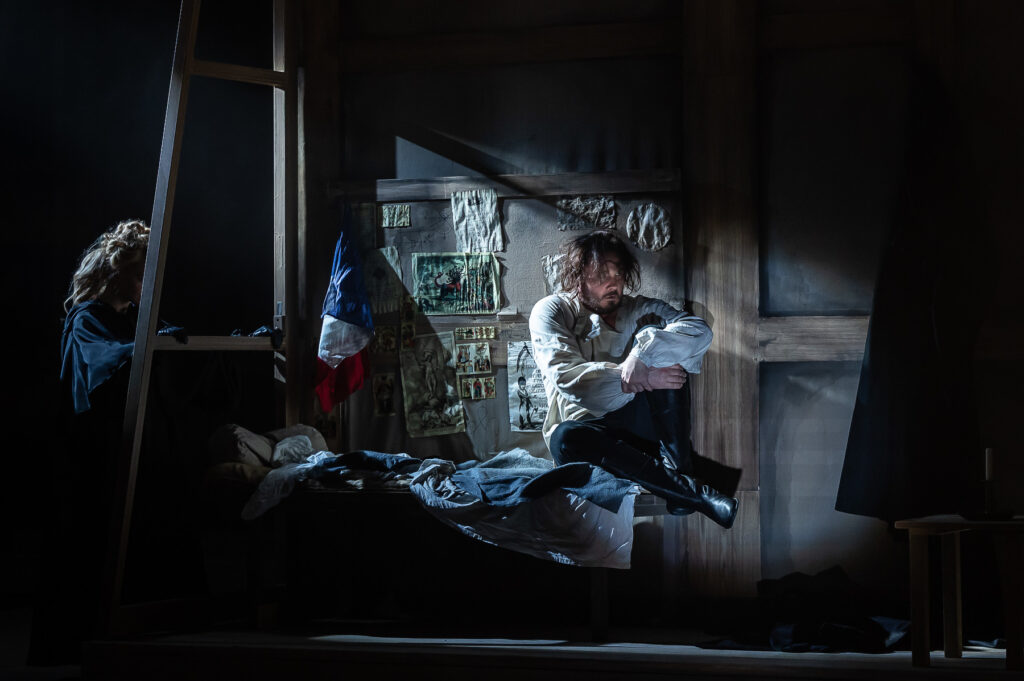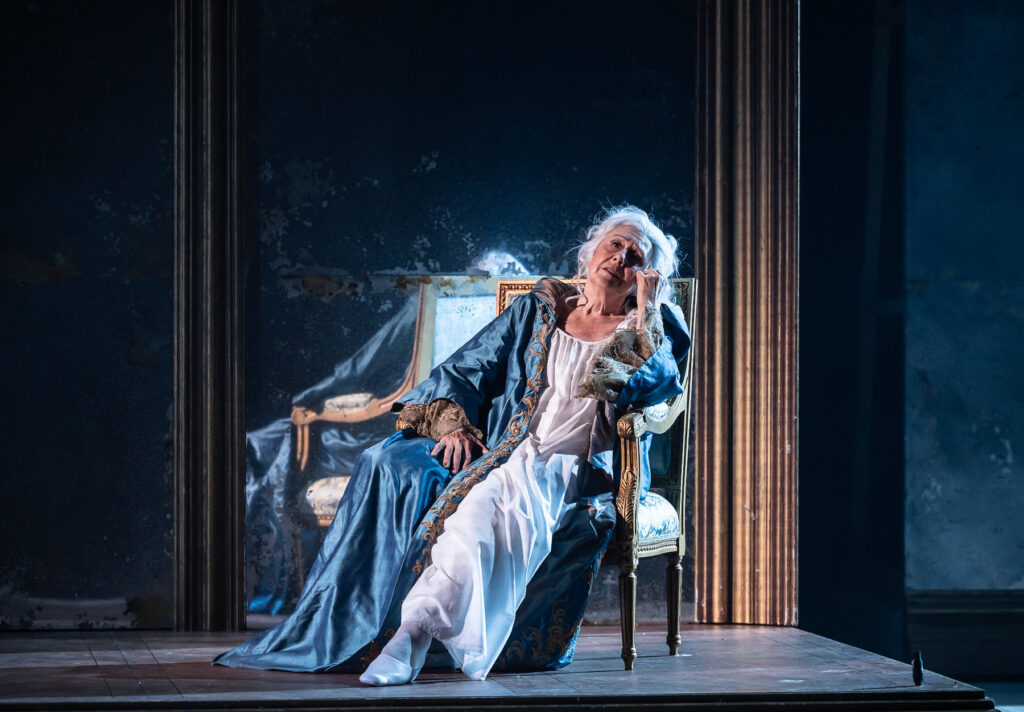When Tchaikovsky’s card-game opera first appeared at London’s Drury Lane Theatre in 1915, it was announced by The Times as ‘a romance’. That’s marketing for you and pushing things a bit far, even with Pushkin’s original novella of 1833, where Lisa marries a dull functionary, while the anti-hero Herman, diminished by his gambling addiction, is confined to a mental asylum. Nothing so unsensational in Tchaikovsky’s reimagining who, with his brother Modest, decided on an alternative ending with a double suicide. Add a large dollop of obsession and hopeless love and you have one of Russia’s most dramatic stage works. No surprise the composer considered it his masterpiece.

Under the guiding hand of Jack Furness, Garsington’s first production of The Queen of Spades ramps up the tragedy with some disturbing undercurrents. Beneath the gloss of those stylish period costumes (plus français que russe), everything is not quite all present and correct. During the opening garden scene one of the boy soldiers is bullied, and some lascivious behaviour casts a shadow on the masked ball, Furness and designer Tom Piper clearly wishing to cut through the well upholstered social apparatus of the Russian elite to reveal society’s seamy underbelly. Central to Piper’s ever-changing stage is the recurring use of large mirror panels which create adjustable spaces and simultaneously reflect the actions of those on stage. Overall, it’s a darkly compelling interpretation, though any supernatural elements are downplayed. Choreography is impressive thanks to Lucy Burge whose bawdy ballet sequence is outrageous fun and the closing card scene a real winner, all beautifully lit by Lizzie Powell.
Anyone expecting a drowning for Lisa at the end will, instead, see her being borne aloft and carried offstage. And that might be as confusing for some as Herman’s shooting of Catherine the Great at the close of the first half. Has his mind begun to unravel so quickly that he suddenly dreams this event? If so, it’s a bolt out of the blue and feels oddly out of place.

For any staging of The Queen of Spades to work convincingly there needs to be sustained dramatic tension, as well as an anti-hero whose voice can meet the huge demands set by Tchaikovsky. These were met with partial success. One is in no doubt as to Aaron Cawley’s heldentenor credentials as Herman. With those flung out top notes, his voice could have soared over the Chiltern Hills. It’s an emphatic tone, arguably well suited to Herman’s obsession to know the secret of the three cards related to him by the elderly Countess and his determination to woe her ward Lisa. In the relatively modest size of Garsington’s glass-sided auditorium, decibels can be overrated.
Less is more might have been a better bet when wooing Laura Wilde’s Lisa, a vocal role she fulfils admirably, excelling in the floor-pacing unrest of her first number in Act 1 and in the shattered dreams of her Act 3 ‘Akh! istomilas ya goryem’ (‘I am worn you by grief’). But for all the polish and security of her singing I was left unmoved by her inner turmoil largely owing to the absence of chemistry between her and Cawley, two central leads needing a little more directional intervention. Ironically, it was a graceful Harriet Williams, understudying an indisposed Diana Montague (on the second evening of the run), who gave an involving rendition when recalling her youthful dalliances at the Court of Versailles. Her plaint and unforced mezzo in the “Venus of Moscow” episode perfectly matched the nostalgia of the scene.

No less ear-catching was Stephanie Wake-Edwards’s Daphnis whose fruity mezzo and natural stage presence persuaded as the lovestruck swain to Wilde’s Chloe – one of the more winsome duets of the evening. Other rewarding moments come from Roderick Williams as the luckless Prince Yeletsky, his big moment finely sung with much gratifying warmth of expression. Elsewhere, Robert Hayward’s powerful baritone made for an assertive Count Tomsky.
In the pit, Douglas Boyd directs the Philharmonia Orchestra with terrific élan drawing out Tchaikovsky’s dark colouring and integrating the score’s many stylistic contrasts with great skill. Above stage, the chorus, both adults and children, are in fine form, the closing a cappella moment especially haunting.
David Truslove
The Queen of Spades
Music: Pyotr Ilyich Tchaikovsky
Libretto: Modest Tchaikovsky, after Alexander Pushkin
Cast and production staff:
Herman – Aaron Cawley; Count Tomsky – Robert Hayward; Prince Yeletsky – Roderick Williams; Tchekalinsky – Sam Furness; Surin – Simon Shibambu; Major-Domo – Will Diggle; Narumov – Thando Swane; Liza – Laura Wilde; Polina/Daphnis – Stephanie Wake-Edwards; Governess – Hannah Poulsom; Countess – Harriet Williams; Masha – Alexandria Moon; Catherine the Great – Julie da Silva Moore
Director – Jack Furness; Designer – Tom Piper; Lighting designer – Lizzie Powell, Movement – Lucy Burge; Garsington Opera Chorus, Garsington Opera Children’s Chorus, Philharmonia Orchestra; Conductor – Douglas Boyd.
Garsington, Wormsley Estate, Buckinghamshire, 31 May 2025
All photos © Julian Guidera